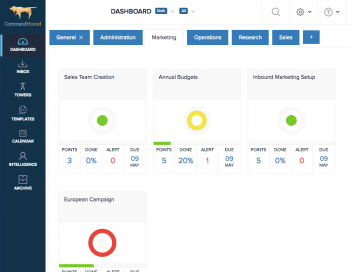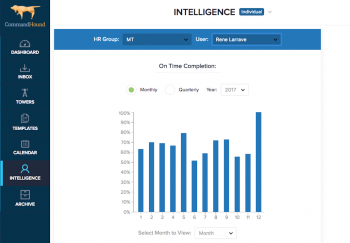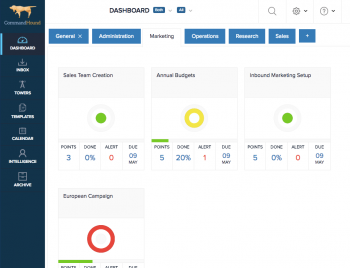Many clients have recently asked us for our top recommendations for project management software and tools. Our experience with these tools is mostly derived from helping our clients incorporate them into their processes while we add the accountability layer that is often missing in these tools to make sure things get done.
Insights: Project Management
As the manager of a project or of a special company initiative, have you ever been in the position of realizing that nobody is taking the project seriously?
There has been a lot of buzz recently about WOOP. No, not the sound you make when you’re really excited about something. We’re talking about W.O.O.P., a productivity solution developed by Dr. Gabriele Oettingen that provides a framework for accomplishing big goals one step at a time. W.O.O.P. stands for “Wish, Outcome, Obstacle, Plan,” and it outlines the four steps that make it most easy for you to actually accomplish your goals.
Setting up a project management office is one the most effective things you can do to manage multiple projects around your organization. But it could become a big waste of time and resources if not configured properly.
Project Management offices are well-oiled machines, tasked with constant attention to pending tasks, dependencies, and upcoming deadlines.
Everybody talks about how to get better at project management, by reviewing lessons learned and best practices, but few talk about the most common issues project managers encounter in the field.
Professional services firms all have the same operational issue – how to best manage multiple client engagements, simultaneously, while maximizing available resources to deliver on time, as promised.
We have found that every team is made up of two broad types of people– the Idea Makers and the Doers. If you’ve ever taken a Myers Briggs test, you might know these two groups as Judgers (J) and Perceivers (P).
What is done is done. Now, it is time for Facebook to take ownership of what happened, and prepare a plan to both handle the current crises and mitigate the risk of this ever happening again.
Every manager has faced the disappointment of assigning a task to a team member and finding out that the task was ignored or slipped through the cracks.










